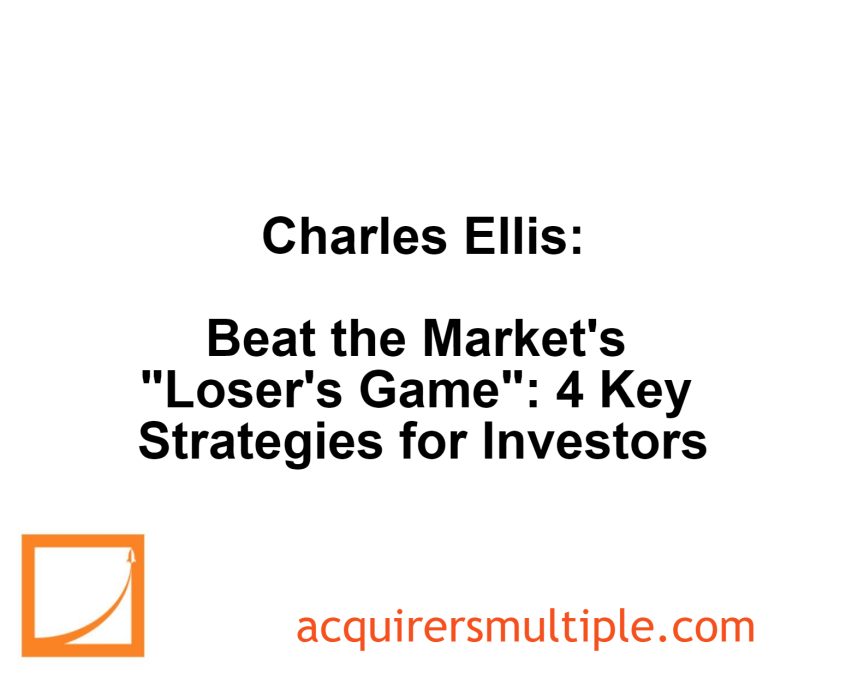In this article titled The Loser’s Game, Charles Ellis provides 4 key strategies for those trying to win the Market’s “Loser’s Game” of investing:
Key strategies:
- Play your own game: Know your investment principles and stick to them consistently
- Embrace simplicity and focus on making fewer, informed decisions
- Strengthen your defenses: Concentrate on selling underperforming assets rather than just chasing new buys.
- Maintain emotional detachment: Recognize that even experts face difficulties in this market. Don’t personalize failures, understand the systemic limitations
Here’s an excerpt from the article:
For those who are determined to try to win the Loser’s Game, however, there are a few specific things they might consider.
First, be sure you are playing your own game. Know your policies very well and play according to them all the time. Admiral Morrison, citing the Concise Oxford Dictionary, says:
“Impose upon the enemy the time and place and conditions for fighting preferred by oneself.” Simon Ramo suggests: “Give the other fellow as many opportunities as possible to make mistakes, and he will do so.”
Second, keep it simple. Tommy Armour, talking about golf, says “Play the shot you’ve got the greatest chance of playing well.” Ramo says: “Every game boils down to doing the things you do best, and doing them over and over again.”
Armour again: “Simplicity, concentration and economy of time and effort have been the distinguishing feature of the great players’ methods, while others lost their way to glory by wandering in a maze of details.”
Mies Van der Rohe, the architect suggests, “Less is more.” Why not bring turnover down as a deliberate, conscientious practice? Make fewer and perhaps better investment decisions. Simplify the professional investment management problem. Try to do a few things unusually well.
Third, concentrate on your defences. Almost all of the information in the investment management business is oriented toward purchase decisions. The competition in making purchase decisions is too good. It’s too hard to outperform the other fellow in buying.
Concentrate on selling instead. In a Winner’s Game, 90 per cent of all research effort should be spent on making purchase decisions; in a Loser’s Game, most researchers should spend most of their time making sell decisions.
Almost all of the really big trouble that you’re going to experience in the next year is in your portfolio right now; if you could reduce some of those really big problems, you might come out the winner in the Loser’s Game.
Fourth, don’t take it personally. Most of the people in the investment business are “winners” who have won all their lives by being bright, articulate, disciplined and willing to work hard.
They are so accustomed to succeeding by trying harder and are so used to believing that failure to succeed is the failure’s own fault that they may take it personally when they see that the average professionally managed fund cannot keep pace with the market any more than John Henry could beat the steam drill.
There is a class of diseases which are called “iatrogenic” meaning they are doctor-caused. The Chinese finger cage and the modern straightjacket most tightly grip the person who struggles to break free.
Ironically, the reason institutional investing has become the Loser’s Game is that in the complex problem each manager is trying to solve, his efforts to find a solution – and the efforts of his many urgent competitors – have become the dominant variables.
And their efforts to beat the market are no longer the most important part of the solution; they are the most important part of the problem.
You can find the article here:
Charles Ellis – The Loser’s Game
For all the latest news and podcasts, join our free newsletter here.
Don’t forget to check out our FREE Large Cap 1000 – Stock Screener, here at The Acquirer’s Multiple:



